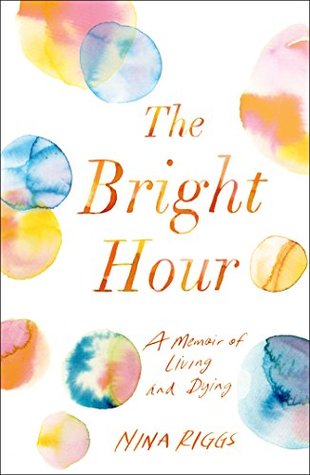More on this book
Community
Kindle Notes & Highlights
by
Nina Riggs
Read between
December 22, 2020 - January 29, 2021
“Why does our common language, which is so plain in its other uses, become obscure and unintelligible in contracts and wills?” asks Montaigne.
Montaigne summons Plato’s belief that doctors should ideally experience all the illnesses they seek to cure:
He’s not happy. I feel the cool bricks of an invisible wall settling into place between us.
“One-boobed, mentally unstable, newly divorced, borderline obese freight train with cankles, two kids, a silver-fox butch hairdo, and vaginal dryness ISO hot-bodied twentysomething with a large trust fund and larger hands who likes long walks on the beach, intelligent discussion, and uncomfortable sex.”
Straight-ish White Aristocrat/Thinker with persistent kidney stones and gout, robust bowels and waning sexual appetite, impressive book collection in welcoming medieval tower, and a passion for the Ancients and spicy food, ISO moderation in everything, long walks in unsettled woods, and intimacy with fear. Bandits, skeletons, and Death welcome. Politicians and doctors need not respond.
trying to both preserve and crack open the lie that time doesn’t pass, that loss isn’t a blade so sharp that it can make you bleed long before you ever feel the sting.
She embodies some of that stoicism that Montaigne admired so much—a kind of fearless acceptance. Well, not fearlessness exactly—but a fearlessness of being afraid.
“I am cheered with the moist, warm, glittering, budding and melodious hour that takes down the narrow walls of my soul and extends its pulsation and life to the very horizon. That is morning; to cease for a bright hour to be a prisoner of this sickly body, and to become as large as the World.”
I knew I was wrong even as the words came out of my mouth.
Montaigne incredulous: “Did you think you would never reach the point toward which you were constantly heading?”
that living with a terminal disease is like walking on a tightrope over an insanely scary abyss. But that living without disease is also like walking on a tightrope over an insanely scary abyss, only with some fog or cloud cover obscuring the depths a bit more—sometimes the wind blowing it off a little, sometimes a nice dense cover. Speaking of abysses,
I will never travel with my nearly grown sons through Italy. Let’s just say that. Just as they will—probably—never buy an espresso with lire or navigate the world without a handheld map that knows their exact location and the likelihood of a coming squall to hamper their hike along the cliff side from the villages of Corniglia to Manarola. That world is gone. Instead, we follow our children down manicured paths through an overdeveloped inland swamp, whispering remember you must—we all must—die in their ears as they find their way through worlds rebuilt and worlds that never were.


